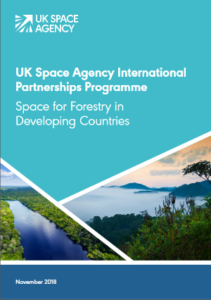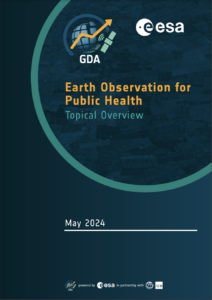The report is drafted by Caribou Space for the International Partnership Programme, a five-year, £30 million per year programme run by the UK Space Agency. This report outlines why and how the space industry has a critical role to play in addressing major challenges confronting the forestry sector in developing countries.
The global forestry sector faces many challenges, many of which are more acute in developing countries. These nations have some of the most valuable forests in terms of timber and ecosystems, but their sustainability is increasingly under threat. Rapidly growing human populations require more land for agriculture, while increased exposure to international markets for commodities like timber, soy, and palm oil are driving deforestation and forest degradation. These processes are entirely legal but developing country forestry is also troubled by illegal deforestation.
These processes cause huge carbon emissions – around one-sixth of the emissions from all human sources – and are driving climate change. Additionally, the clearance of tropical forests is the largest driver of tropical biodiversity loss and also deprives forest-dependent communities of their livelihoods.
It is therefore crucial to monitor these processes. This is very challenging, or even impossible, using traditional ground-based methods. In some instances, such as for very high-resolution photography surveys, aircraft can be used. However, for consistent, accurate, high-frequency monitoring of forests at large scales, with automated data delivery, processing and analysis, space provides the only viable solution. This report outlines in detail why and how the space industry has a critical role to play in providing such solutions.





